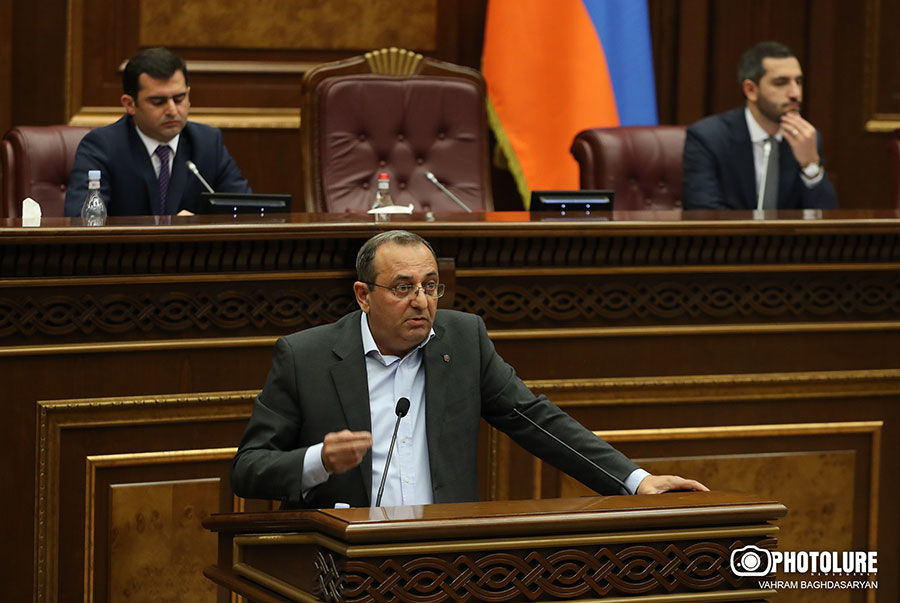The pro-government majority in the Armenian parliament rejected on Tuesday an opposition initiative to debate Prime Minister Nikol Pashinian’s territorial concessions to Azerbaijan that have sparked angry protests across Armenia.
Deputies representing Pashinian’s Civil Contract party refused to include on the parliament agenda a draft statement describing the planned handover of four border areas to Baku as illegal and dangerous for the country’s national security.
“Civil Contract has once again refused to adopt this statement strengthening our statehood,” said Artsvik Minasyan, a senior lawmaker from the main opposition Hayastan alliance.
Read also
“States have state borders, but what you want us to be guided by a line of contact,” countered Civil Contract’s Maria Karapetyan. “How does it strengthen the statehood?”
Hayastan and other opposition groups say that the land handover would create severe security risks for not only border villages in Armenia’s northern Tavush province but also the country as a whole. They maintain that Armenian withdrawal from those border areas would leave Tavush far more vulnerable to Azerbaijani attacks.
Some opposition lawmakers have taken part in the ongoing protests. Their epicenter is just outside the Tavush village of Kirants. A section of a key national highway passing through Kirants has been blocked by protesters since April 20.
Artur Khachatryan, the Hayastan lawmaker who presented the opposition statement on the parliament floor, also challenged the legality of what Pashinian’s government calls the start of the Armenian-Azerbaijani border delimitation.
Khachatryan’s pro-government colleagues responded by implicitly accusing the opposition of collaborating with Russia. They also echoed Pashinian’s claims that failure to cede that territory would give Azerbaijan an excuse to invade Armenia.
Meeting with a group of Kirants residents on Monday, Pashinian reportedly admitted that even his latest concessions to Baku will not guarantee the security of the affected Armenian communities.
One of those villagers, Vladimir Shahinian, confirmed on Tuesday that they came away from the meeting dissatisfied and discouraged.
“They say that everything will be good but we see nothing good for our community,” he told RFE/RL’s Armenian Service.
The “border delimitation” would leave a bridge and agricultural land adjacent to Kirants under Azerbaijani control. Some village houses would find themselves extremely close to the new Azerbaijani border posts. Shahinian said their occupants would have no choice but to leave their homes.
“If [the new border passes] through the courtyard of our school, how can it work and how can children attend it?” he said. “If you open the door of your house and see Azerbaijanis standing nearby how can you leave in peace with them after so much bloodshed? Of course you can’t.”
“We don’t know how much time people will have to move out,” added the man. “We don’t know yet just how the authorities will accommodate them.”

























































